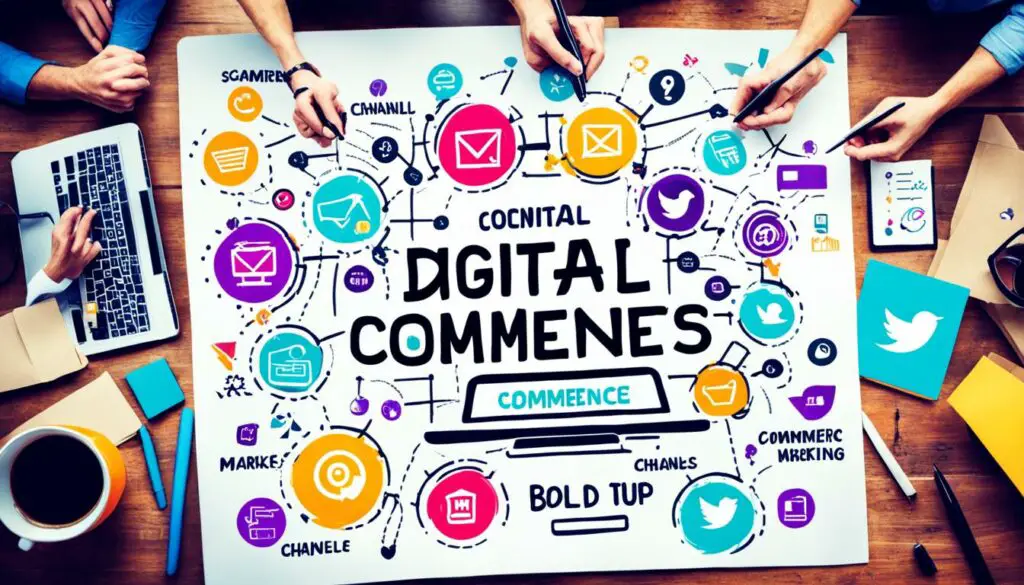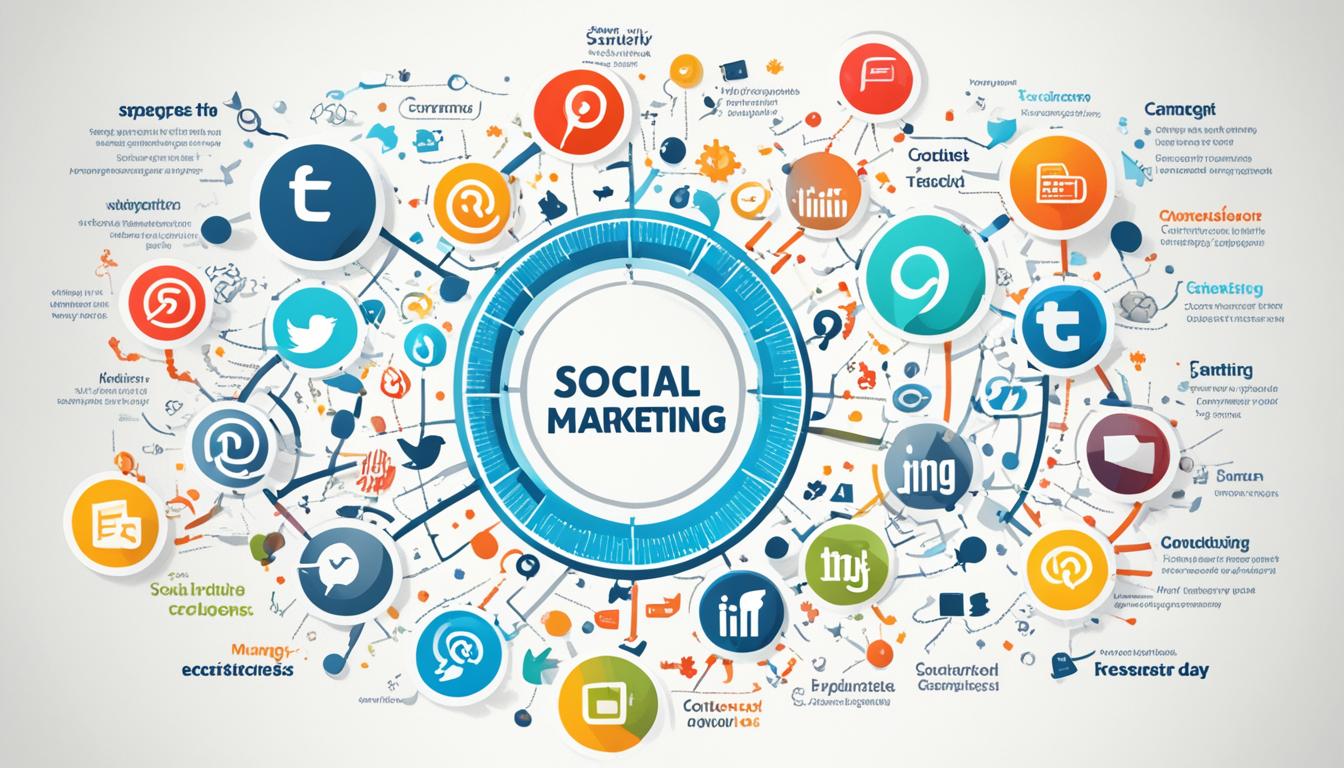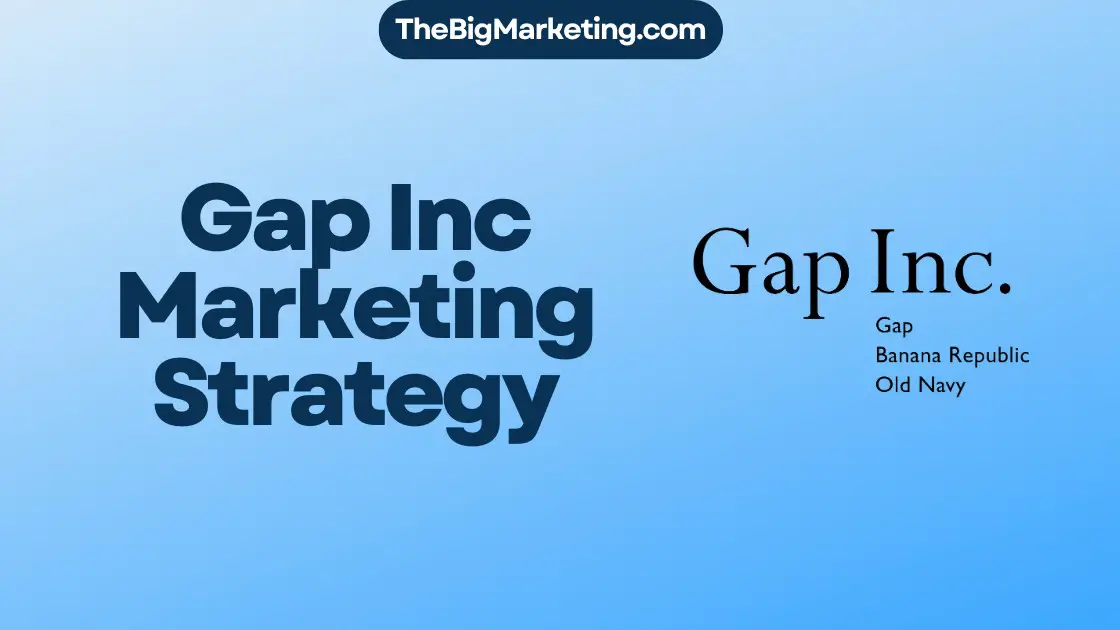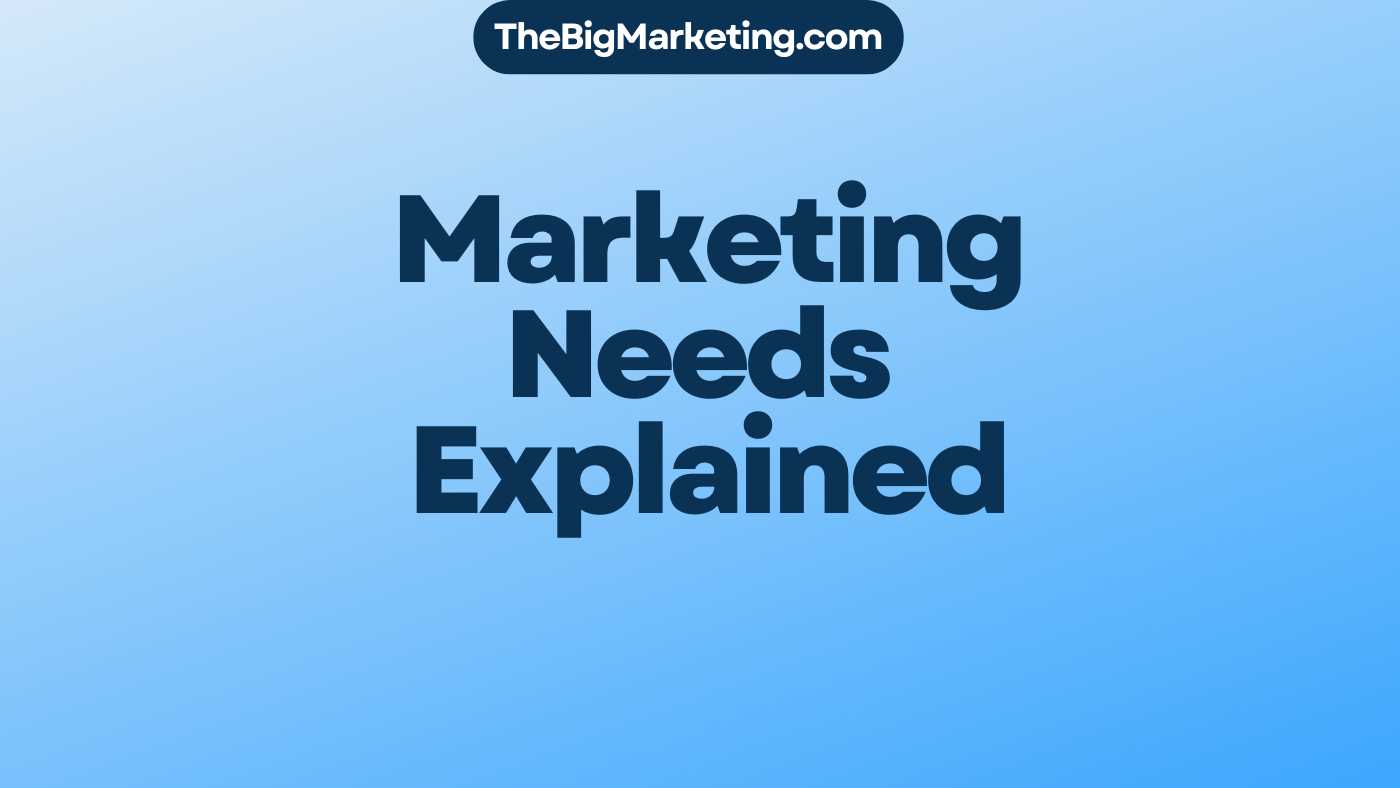E-commerce and digital marketing are two essential components of online business growth. Understanding the differences and leveraging their combined power can drive success in the ever-evolving landscape of online retailing and internet marketing. In this comprehensive guide, we will explore the definitions of e-commerce and digital marketing, their benefits, effective e-commerce strategies, digital marketing tactics, and the synergetic relationship between these two domains. By the end of this guide, you will have a solid understanding of how to harness the power of e-commerce and digital marketing to fuel your online business growth.
Key Takeaways:
- E-commerce and digital marketing are two distinct but interrelated components of online business growth.
- E-commerce refers to the buying and selling of products or services online, while digital marketing focuses on promoting and advertising a brand or business using digital channels.
- Effective e-commerce strategies include improving the customer experience, adopting mobile commerce, leveraging personalization techniques, and utilizing data analytics.
- Digital marketing tactics for e-commerce encompass online advertising, SEO, social media marketing, content marketing, and email marketing.
- Understanding the differences and benefits of e-commerce and digital marketing can help businesses allocate resources effectively and make informed strategic decisions.
What is E-commerce?
E-commerce, short for electronic commerce, is the process of buying and selling goods or services online. It involves using the internet and digital technologies to enable online transactions. This revolutionary form of commerce has transformed the way consumers shop, providing unparalleled convenience and accessibility.
There are three main types of e-commerce:
- Business-to-Business (B2B): This type of e-commerce involves transactions between businesses. It typically includes online transactions of raw materials, components, or finished products between suppliers, manufacturers, wholesalers, and retailers.
- Business-to-Consumer (B2C): B2C e-commerce refers to online transactions between businesses and individual consumers. Examples include online retail stores that sell products directly to customers.
- Consumer-to-Consumer (C2C): C2C e-commerce involves transactions between individual consumers. This can take the form of online marketplaces or platforms where individuals can buy and sell products or services directly to each other. Popular examples of C2C e-commerce sites include eBay and Craigslist.
E-commerce offers a wide range of benefits for both buyers and sellers. For buyers, it provides 24/7 accessibility, allowing them to shop at their convenience from anywhere with an internet connection. The global reach of e-commerce eliminates geographical limitations, providing access to products from around the world. E-commerce also offers a wide selection of products, allowing buyers to easily compare prices, features, and customer reviews before making a purchase. Furthermore, e-commerce provides convenience and cost efficiency, eliminating the need for physical store visits, reducing travel costs, and often offering competitive prices.
E-commerce has revolutionized the business landscape, empowering businesses of all sizes to reach a broader audience and compete on a global scale. Whether you’re an established brand or an aspiring entrepreneur, harnessing the power of e-commerce can unlock a world of opportunities and drive business growth.
What is Digital Marketing?
Digital marketing is the promotion and advertising of a brand or business using the internet and various digital channels. It involves leveraging technologies such as social media, search engines, email marketing, and content marketing to reach and engage with the target audience.
A digital marketing strategy encompasses a range of activities, including setting goals, defining a budget, researching the target audience, developing channel-specific strategies, implementing and monitoring campaigns, and making necessary adjustments.
Digital Communication Methods
There are several digital communication methods used in digital marketing:
- Social media marketing: Leveraging platforms like Facebook, Twitter, and Instagram to engage with the audience, build connections, and promote products or services.
- Search engine optimization (SEO): Optimizing website content to improve visibility in search engine results and drive organic traffic.
- Email marketing: Sending targeted emails to nurture leads, build customer relationships, and drive conversions.
- Content marketing: Creating and distributing valuable, relevant, and informative content to attract and engage the target audience.
- Mobile marketing: Reaching the audience through mobile devices, such as SMS marketing and in-app advertising.
Examples of Digital Marketing
Here are some examples of digital marketing in action:
- Content Marketing: Creating informative blog posts or videos that provide value to the audience and establish thought leadership.
- Social Media Marketing: Promoting products or services through engaging social media posts and advertisements.
- Email Marketing: Sending personalized and targeted emails to customers with product recommendations or exclusive offers.
- Search Engine Optimization (SEO): Optimizing website content and structure to improve visibility and organic search rankings.
- Mobile Marketing: Targeting mobile users with location-based offers or through mobile apps.
Digital marketing is a powerful strategy that enables businesses to connect with their target audience, build brand awareness, and drive conversions. By utilizing various digital channels and communication methods, businesses can effectively promote their products or services online and achieve their marketing goals.
E-commerce Vs Digital Marketing: Understanding the Differences
While e-commerce and digital marketing are closely related, it is essential to understand their distinctions and differences. E-commerce primarily focuses on the online buying and selling of products or services, providing a platform for transactions and facilitating the movement of goods in the digital realm. On the other hand, digital marketing emphasizes the promotion and advertising of a brand or business using various digital channels, such as search engines, social media, and email marketing.
E-commerce is the foundation of online retailing, offering a platform for businesses to showcase and sell their products or services to customers worldwide. It involves creating an online store, facilitating online transactions, and managing the logistics of order fulfillment and customer service. Digital marketing, on the other hand, is the strategic use of digital communication methods to reach and engage with the target audience, build brand awareness, drive website traffic, and ultimately increase sales.
The relationship between e-commerce and digital marketing is one of synergy. While e-commerce provides the platform for online transactions, digital marketing drives traffic to e-commerce platforms, ensuring a steady stream of potential customers. Through digital marketing tactics, businesses can raise awareness about their e-commerce offerings, target specific customer segments, and build relationships with customers.
The Importance of Understanding
Understanding the differences between e-commerce and digital marketing is crucial for businesses to allocate resources effectively and make informed strategic decisions. By recognizing the unique purposes and functions of each, businesses can develop comprehensive strategies that leverage the strengths of both e-commerce and digital marketing. This understanding enables businesses to optimize their online presence, drive sales, foster customer loyalty, and achieve long-term success in the digital landscape.
| E-commerce | Digital Marketing |
|---|---|
| Focuses on online buying and selling of products or services | Emphasizes the promotion and advertising of a brand or business |
| Provides a platform for transactions and order fulfillment | Utilizes various digital channels for marketing communication |
| Drives online business growth through sales and revenue generation | Facilitates brand visibility, customer engagement, and lead generation |
| Requires logistics management and customer service support | Requires strategic planning, data analysis, and conversion optimization |
Benefits of E-commerce and Digital Marketing
E-commerce and digital marketing offer numerous benefits for both customers and businesses:
Customer Benefits:
- Convenience: Customers can shop online anytime, anywhere, without the need to visit physical stores.
- Wide Range of Products: E-commerce provides access to a vast selection of products from various sellers and brands.
- Personalized Shopping Experiences: With digital marketing techniques, customers receive tailored recommendations and offers based on their preferences and browsing history.
- Easy Product Information and Reviews: Customers can easily access detailed product information and read reviews from other buyers, enabling informed purchasing decisions.
Business Benefits:
- Global Reach: E-commerce allows businesses to reach customers globally, expanding their potential customer base.
- Lower Overhead Costs: Compared to physical stores, operating an online business incurs lower expenses, including rent and utility bills.
- Increased Sales Opportunities: Through digital marketing channels, businesses can attract more potential customers and generate more sales.
- Direct Communication with Customers: E-commerce platforms and digital marketing tools enable direct and instant communication with customers, fostering better relationships and addressing their needs.
- Data-Driven Insights: E-commerce and digital marketing provide access to valuable customer data and analytics, allowing businesses to gain insights and make data-driven decisions.
- Personalized Marketing Messages: With digital marketing techniques like email marketing and personalized ads, businesses can deliver tailored marketing messages to specific customer segments, enhancing engagement and conversion rates.
By leveraging the benefits of e-commerce and digital marketing, businesses can drive online growth and stay competitive in the digital landscape.
Ecommerce Strategies and Trends
In this section, we will explore various ecommerce strategies and trends that can enhance online retailing. By implementing these strategies and staying up to date with the latest trends, you can stay ahead of the competition and drive the growth of your ecommerce business.
Improving the Customer Experience
- Optimize website navigation to ensure seamless and intuitive browsing.
- Implement fast-loading pages and smooth checkout processes to minimize friction.
- Provide clear product descriptions, high-quality images, and customer reviews to help customers make informed purchasing decisions.
- Offer personalized recommendations and tailored shopping experiences based on customer preferences and behavior.
Adopting Mobile Commerce
- Create a responsive website design that delivers a seamless shopping experience across devices.
- Optimize your website for mobile search and ensure easy mobile checkout.
- Develop a mobile app to enhance customer loyalty and engagement.
- Utilize push notifications and location-based marketing to reach customers on the go.
Leveraging Personalization Techniques
- Segment your customer base and deliver targeted marketing messages based on their interests and preferences.
- Offer personalized product recommendations and dynamic pricing to increase customer satisfaction and conversion rates.
- Utilize retargeting strategies to bring back potential customers who have shown interest but haven’t completed a purchase.
- Implement chatbots and AI-powered customer support to provide personalized assistance and improve customer experience.
Implementing Secure Payment Systems
- Integrate secure payment gateways to build trust and ensure safe transactions.
- Display trust badges and secure SSL certificates to reassure customers of the security of their personal and financial information.
- Offer multiple payment options to cater to different customer preferences.
- Regularly monitor and update your payment systems to stay ahead of emerging security threats.
Optimizing Product Pages for Conversion
- Create compelling product descriptions, highlighting key features and benefits.
- Include high-quality product images and videos to showcase the product from different angles and perspectives.
- Add customer reviews and testimonials to build social proof and credibility.
- Implement clear and persuasive calls-to-action to encourage customers to make a purchase.
Utilizing Data Analytics for Business Insights
- Track and analyze customer behavior, purchasing patterns, and website traffic to gain valuable insights.
- Use data analytics to identify opportunities for improvement and make data-driven decisions.
- Implement A/B testing to optimize website elements and marketing campaigns based on real-time data.
- Leverage predictive analytics to anticipate customer needs and personalize marketing efforts.
Emerging Ecommerce Technologies and Trends
- Augmented Reality (AR) and Virtual Reality (VR) shopping experiences
- Voice commerce
- Subscription-based models
By incorporating these ecommerce strategies and staying updated with the latest trends and technologies, you can create a compelling online retail experience that attracts and retains customers, drives conversions, and boosts the growth of your ecommerce business.
Digital Marketing Tactics for E-commerce
Digital marketing plays a crucial role in driving traffic to e-commerce platforms and increasing online sales. To maximize your e-commerce business’s potential, it is essential to implement effective digital marketing tactics specifically tailored for this industry. In this section, we will explore a variety of tactics that can significantly boost your e-commerce business.
Online Advertising
Online advertising is a powerful tool to reach your target audience and generate brand awareness. By leveraging platforms such as Google Ads, social media ads, and display advertising networks, you can effectively promote your e-commerce products or services to potential customers. Implementing targeted online advertising campaigns can increase your online visibility, drive quality traffic, and ultimately result in higher conversion rates.
Search Engine Optimization (SEO) for E-commerce
SEO for e-commerce is critical to improve your website’s visibility in search engine results pages. Through thorough keyword research, optimizing product descriptions and metadata, and implementing technical SEO best practices, you can enhance your e-commerce website’s organic search rankings. By securing higher search engine rankings, you can attract more organic traffic, increase brand visibility, and generate higher-quality leads.
Social Media Marketing for E-commerce
Social media marketing is a powerful tool for engaging with your target audience, driving brand awareness, and promoting your products or services. By creating an effective social media strategy, you can build a community of loyal followers, leverage user-generated content, and encourage social sharing. Platforms like Instagram, Facebook, and Pinterest are especially effective for e-commerce businesses, allowing you to showcase your products visually and engage with potential customers.
Content Marketing for E-commerce
Content marketing is a strategic approach to attract and engage your target audience by creating valuable and relevant content. For e-commerce businesses, content marketing can take various forms, including product reviews, tutorials, guides, blog posts, and videos. By providing valuable information, addressing pain points, and establishing yourself as an industry thought leader, you can build trust with your audience and drive traffic to your e-commerce site.
Email Marketing for E-commerce
Email marketing is a powerful tactic for nurturing customer relationships, driving repeat purchases, and increasing customer loyalty. By segmenting your email list, creating personalized content, and implementing automation workflows, you can deliver targeted messages that resonate with your audience. Whether it’s promoting new products, offering exclusive discounts, or sending personalized recommendations, email marketing can greatly impact your e-commerce business’s bottom line.
Implementing these digital marketing tactics can significantly boost your e-commerce business’s online presence, drive traffic to your website, and increase conversions. By utilizing online advertising, optimizing your website for SEO, leveraging social media marketing, creating valuable content, and implementing effective email marketing strategies, you can position your e-commerce business for success in the digital marketplace.

Tools for E-commerce and Digital Marketing
To effectively manage and optimize e-commerce and digital marketing efforts, businesses need access to the right tools. In this section, we will explore popular tools and platforms that can enhance e-commerce operations and digital marketing campaigns. These tools include:
E-commerce Analytics Platforms
E-commerce analytics platforms allow businesses to track and analyze sales and customer data. These tools provide valuable insights into customer behavior, purchase patterns, and website performance, helping businesses make data-driven decisions to optimize their e-commerce strategies.
Social Media Management Tools
Social media management tools enable businesses to schedule and monitor social media posts across multiple platforms. These tools streamline social media management, allowing businesses to engage with their audience, create compelling content, and track social media performance effectively.
Email Marketing Platforms
Email marketing platforms provide businesses with the tools to create and send targeted email campaigns. These platforms offer features such as email list management, campaign automation, and performance tracking, allowing businesses to drive customer engagement, nurture relationships, and increase conversions.
SEO Tools
SEO tools are essential for improving organic search visibility and driving relevant traffic to e-commerce websites. These tools help businesses optimize their website content, identify keywords, track search rankings, and analyze competitor strategies, ensuring that their e-commerce websites rank higher in search engine results.
Advertising Platforms
Advertising platforms provide businesses with the means to run paid online ads across various channels. These platforms offer targeting options, ad creation tools, and performance tracking features, enabling businesses to reach their target audience, drive brand awareness, and increase website traffic, ultimately leading to higher e-commerce sales.
To streamline your e-commerce and digital marketing processes and drive better results, consider utilizing these powerful tools and platforms. They can empower your business to make informed decisions, optimize marketing campaigns, and achieve online success.
Success Stories: E-commerce and Digital Marketing in Action
Real-world success stories of businesses leveraging e-commerce and digital marketing strategies can provide invaluable insights and inspiration for those looking to achieve online growth and success. By examining case studies and examples from various industries, businesses can learn from the experiences of others and apply proven strategies to their own online endeavors.
Case Study 1: XYZ Clothing
XYZ Clothing, a leading online fashion retailer, experienced remarkable success by combining e-commerce and digital marketing effectively. By utilizing targeted social media campaigns, influencer partnerships, and personalized email marketing, XYZ Clothing expanded its customer base and boosted online sales by 50% in just six months. The integration of user-generated content and a seamless shopping experience further contributed to their success.
Case Study 2: ABC Electronics
ABC Electronics, a renowned electronics brand, achieved significant growth by adopting innovative e-commerce and digital marketing strategies. By optimizing their website for mobile devices, implementing a user-friendly interface, and leveraging search engine optimization techniques, ABC Electronics improved their online visibility and organic search rankings, resulting in a 40% increase in website traffic and a subsequent rise in sales.
Case Study 3: RST Beauty
RST Beauty, a luxury skincare brand, utilized content marketing and influencer partnerships to drive brand awareness and increase sales. By creating informative blog posts, engaging videos, and collaborating with popular beauty influencers, RST Beauty positioned itself as an authority in the industry, attracting a loyal customer base and achieving a 60% increase in online sales within a year.
Case Study 4: LMN Home Decor
LMN Home Decor, an online retailer specializing in home furnishings, employed a multi-channel digital marketing approach to enhance their e-commerce business. By combining social media advertising, targeted email marketing, and strategic content creation, LMN Home Decor successfully engaged with their target audience, resulting in a remarkable 75% increase in website conversions and a significant boost in customer loyalty.
These success stories highlight the immense potential of e-commerce and digital marketing when implemented effectively. By learning from industry leaders and applying proven strategies, businesses can create their own success stories and reap the rewards of online growth and increased sales.
Conclusion
E-commerce and digital marketing play vital roles in driving online business growth. While they serve distinct purposes, their collaboration creates a powerful synergy that maximizes results. By understanding the differences and benefits of e-commerce and digital marketing, businesses can allocate resources effectively and make strategic decisions that fuel success.
With e-commerce, businesses can reach a global audience, provide 24/7 accessibility, and offer a wide range of products. Digital marketing, on the other hand, enables businesses to promote their brand, engage with their target audience, and drive traffic to e-commerce platforms. When used in harmony, these two components propel an online business towards increased sales and customer engagement.
To stay ahead in the competitive landscape, it is essential for businesses to leverage the power of e-commerce and digital marketing. By embracing these strategies, companies can experience online business growth by attracting more customers, enhancing user experiences, and making informed decisions based on data-driven insights. Through effective resource allocation and strategic decision-making, businesses can position themselves for long-term success in the digital marketplace.
FAQ
What is the difference between e-commerce and digital marketing?
E-commerce refers to the buying and selling of goods or services online, while digital marketing involves promoting and advertising a brand or business using various online channels.
What are the benefits of e-commerce?
E-commerce offers benefits such as 24/7 accessibility, global reach, a wide selection of products, convenience, and cost-efficiency.
What is digital marketing?
Digital marketing is the promotion and advertising of a brand or business using the internet and digital channels such as social media, search engines, email marketing, and content marketing.
What are some examples of digital marketing tactics?
Examples of digital marketing tactics include content marketing, search engine optimization (SEO), social media marketing, email marketing, and mobile marketing.
How do e-commerce and digital marketing work together?
Digital marketing drives traffic to e-commerce platforms, leading to increased sales and business growth.
What are the benefits of e-commerce for customers?
Customers benefit from the convenience of online shopping, access to a wide range of products, personalized shopping experiences, and easy access to product information and reviews.
What are the benefits of e-commerce for businesses?
Businesses benefit from global reach, lower overhead costs, increased sales opportunities, direct communication with customers, data-driven insights, and the ability to personalize marketing messages.
What are some e-commerce strategies and trends?
E-commerce strategies and trends include improving the customer experience, adopting mobile commerce, leveraging personalization techniques, implementing secure payment systems, optimizing product pages for conversion, and utilizing data analytics for business insights.
What are some digital marketing tactics tailored for e-commerce businesses?
Digital marketing tactics tailored for e-commerce businesses include online advertising, search engine optimization (SEO), social media marketing, content marketing, and email marketing.
What are some tools for e-commerce and digital marketing?
Popular tools and platforms for e-commerce and digital marketing include e-commerce analytics platforms, social media management tools, email marketing platforms, SEO tools, and advertising platforms.
Can you provide examples of businesses that have achieved online growth through e-commerce and digital marketing?
Yes, there are numerous success stories of businesses in various industries that have achieved significant online growth through their e-commerce and digital marketing efforts.







